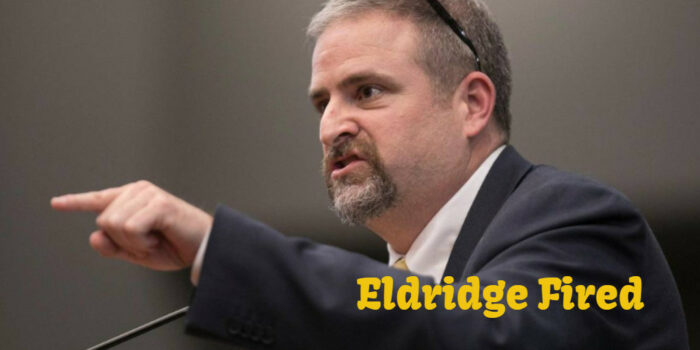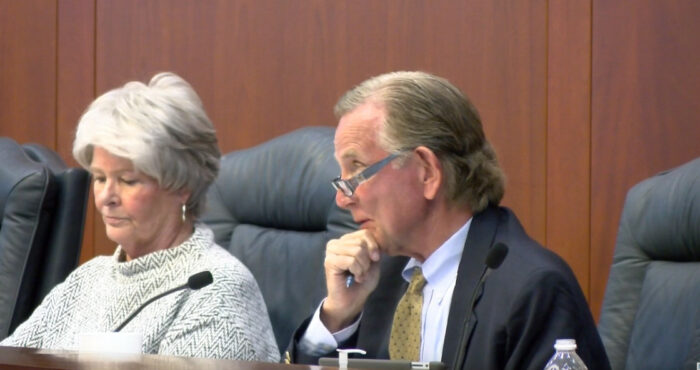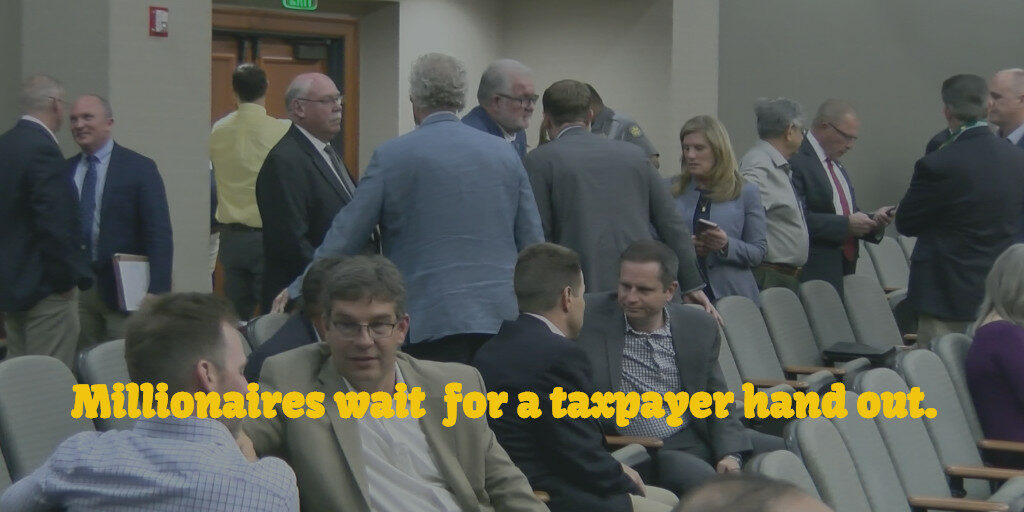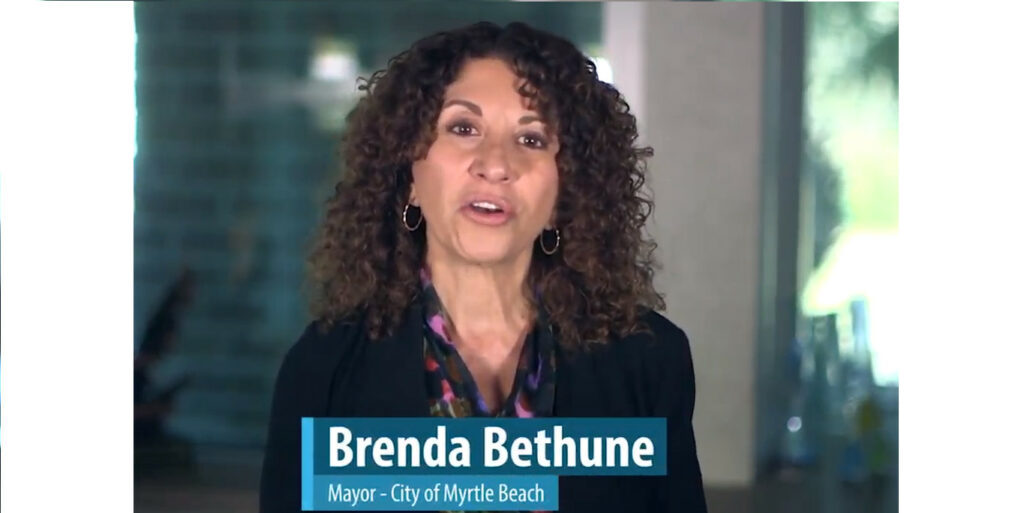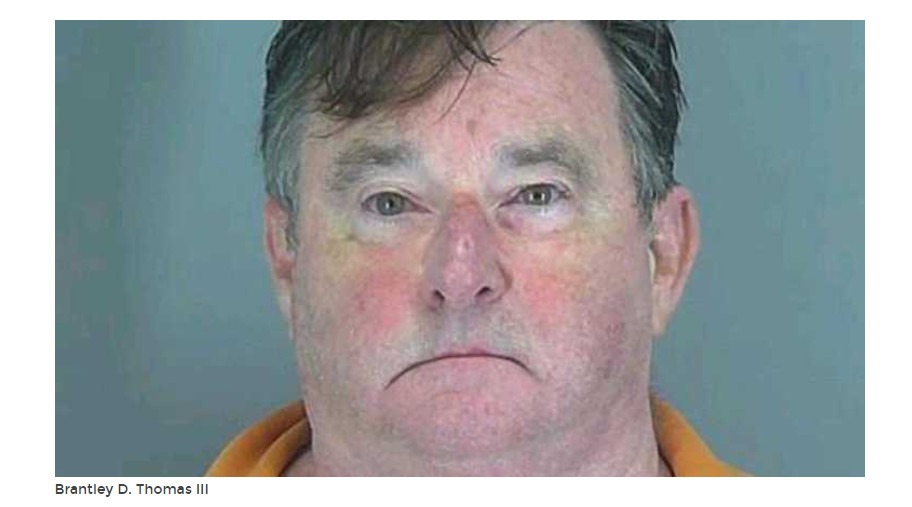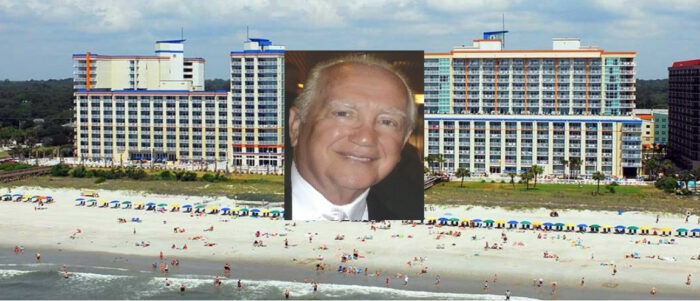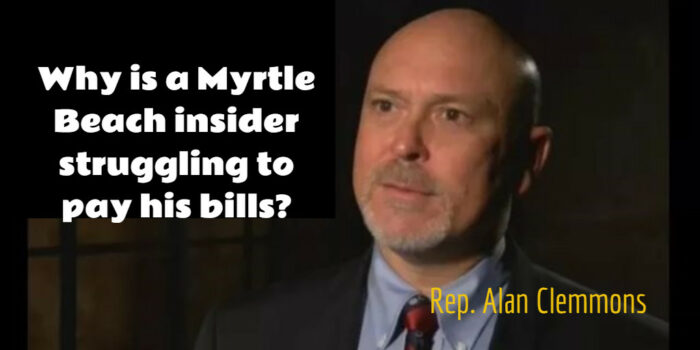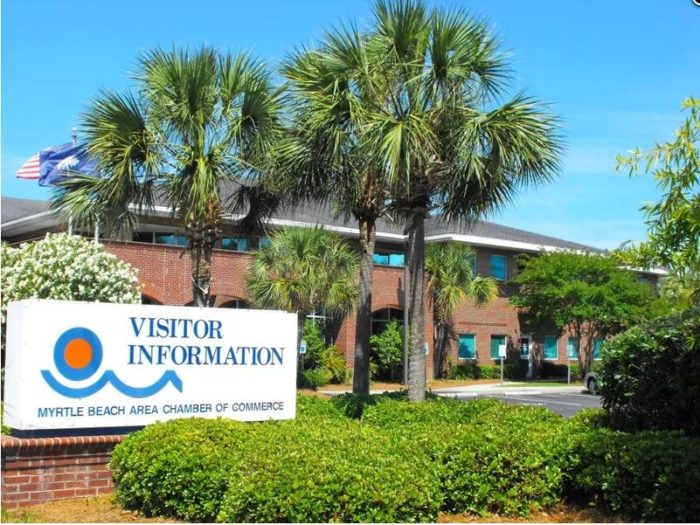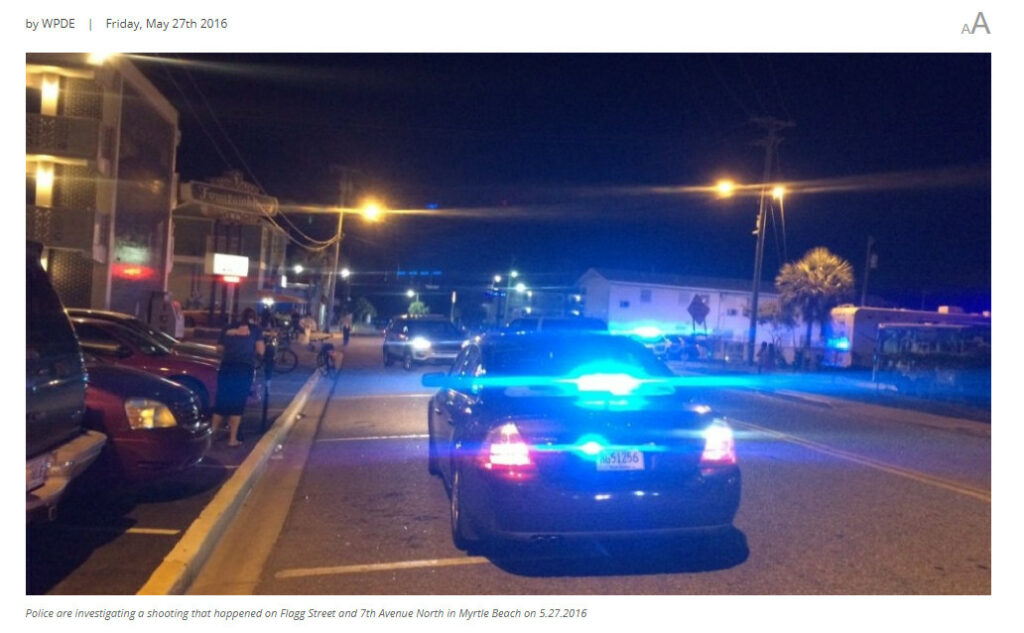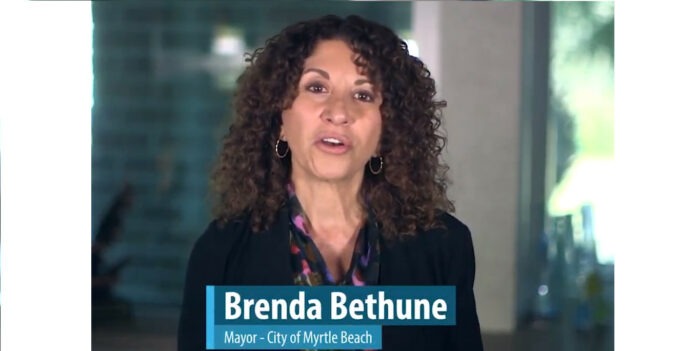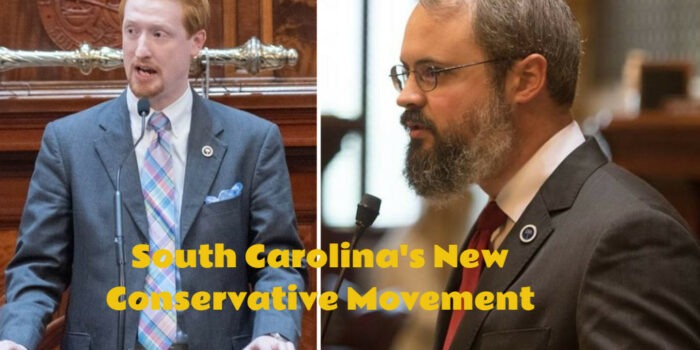Publishers Note: With the S.C. Statehouse in session, much has been made about angry resident language towards S.C. legislators. One key legislator publicly stated yesterday that he was afraid of some constituents on what he called the “far” right. We offer the below re-printed investigative report by the Nerve. In researching this material, we had two Columbia area lawyers explain to our team how the below behavior is actually criminal (in their language).
MBACC’s continued influence in City of Myrtle Beach and State politics however, caused both to refuse to go on the record publicly. Is it no wonder why average residents are so upset?
Finally, we have investigated the past MBACC behavior for over a decade. While the new C.E.O. Karen Riorden has a history of credibility, the past C.E.O. (Brad Dean) operated in ways proven highly suspect by documented facts. We provide links to those reports at the end of this article.
____________________________________________ The Nerve Investigation By Rick Burdett
S.C. lawmakers are funneling millions in tax dollars collectively to economic development and tourism organizations in the state – with the requirement that the groups secure private matches for grants.
These types of “public-private partnerships” have been common in recent years in South Carolina, purportedly to ensure that taxpayers don’t pay most of the cost of promoting the Palmetto State to tourists or companies.
But an investigation by The Nerve of how the grants are awarded found that taxpayers are making up more of the “private match” than they’re supposed to be.
The grants are funded through two obscure state budget provisos renewed annually by lawmakers – one for the Department of Parks, Recreation and Tourism (PRT), and the other for the Department of Commerce. Neither proviso defines what constitutes a private match, or requires PRT or Commerce to verify that all of the matching money doesn’t include public funds.
The lack of accountability is apparent given that two of eight economic development groups that received grants from Commerce in fiscal 2018, which ended last June 30, listed contributions from state or local public entities as part of their private matches.
Moreover, four of five tourism groups that received PRT grants last fiscal year say they make their private matches through a special fee charged by hotels to guests. The tourism groups claim the fee is voluntary and transparent, but The Nerve discovered otherwise in a spot check of several hotels.
Combined, the 13 tourism or economic development organizations were awarded nearly $19 million in state funding last fiscal year under the provisos, which are a separate part of the state budget and usually receive little public attention.
The taxpayer-supported groups typically boast how they bring tourists or jobs to South Carolina, though critics contend that they often overstate their roles or can’t verify their claims.
‘Totally transparent’
In fiscal 2017-18, five tourism groups received a total of $14 million in “Destination Specific Tourism Marketing” grants from PRT, and collectively provided $28 million in required matches, for a grand total of $42 million, PRT records show.
Under the state budget proviso authorizing the PRT grants, the minimum award is $250,000, though no maximum amount is specified. Every state dollar must be matched with two dollars of “private funds,” which isn’t defined.
Following is a breakdown of the state grants awarded last fiscal year, according to PRT records provided to The Nerve:
- Myrtle Beach Area Chamber of Commerce: $6.7 million;
- Charleston Area Convention and Visitors Bureau (CVB): $4.1 million;
- Hilton Head Island-Bluffton Chamber of Commerce and CVB: $1.35 million;
- Greenville CVB: $1.1 million; and
- Columbia CVB: $750,000
The state grants are separate from state or local accommodation taxes that the organizations receive annually for tourism promotion, or from other public revenue sources. The Myrtle Beach Area Chamber of Commerce, for example, received a total of nearly $26.7 million in “local government support” in 2017, according to its annual financial statement.
Contacted last week by The Nerve, representatives of the Charleston, Columbia, Greenville and Hilton Head tourism organizations each said in written responses that participating hotels in their areas assess a room fee toward the private matches for the PRT grants. The Myrtle Beach chamber didn’t respond to questions about the charge.
All five tourism groups declined to release their lists of participating hotels to The Nerve, or didn’t respond to requests for that information.
In a prepared statement, Bill Ellen, president and CEO of Experience Columbia SC, said his organization raised matching funds last fiscal year “privately from about two dozen partner hotels that have a voluntary charge on each occupied room.”
“The charge is totally transparent to the hotel guest and can be removed if requested by the guest,” he added.
The group’s website says the “Destination Marketing Fee” is 2% on each room charge per night, noting, “At the point of check-out, the guest has the opportunity to pay the fee and applicable associated tax, or opt out upon request.”
The website implies that the match money won’t affect the bottom lines of participating hotels, noting, “No money comes out of the hotel budget.”
The site doesn’t say, though, whether guests are told up front that the fee is voluntary, or whether the charge is itemized on their bills.
The hotels are encouraged to participate, with “preferred partners” receiving “exclusive benefits beyond the standard partnership services,” such as “highlighted and enhanced” listings in the Columbia Official Visitors Guide, the site says.
Representatives of the Charleston, Greenville and Hilton Head tourism groups also told The Nerve in written responses last week that the fee charged by hotels in their respective areas for the private matches is voluntary and transparent.
Chris Stone, president of VisitGreenvilleSC, said in an email his organization receives “private investment from 30 local hotels that matches the State’s investment.” Charlie Clark, spokeswoman for the Hilton Head Island-Bluffton Chamber of Commerce, said, “All of our major resorts participate.”
But whether the fees are actually voluntary and transparent is questionable. The Nerve found in a spot check of a Hilton Head resort and two higher-end Columbia hotels that:
- The Hilton Head resort sometimes lumps in its marketing fee, described by two workers there as a “convention tourism tax,” with other state and local taxes. The fee is 1% of the room charge. When asked if guests are told up front that the fee is voluntary, another worker said $1.50 is taken off their bill only if they specifically request it.
- In Columbia, the 2% “Destination Marketing Fee” was lumped in with other state and local taxes under a single “taxes” heading on a guest’s recent bill. “It’s part of the room tax,” one worker there said, adding she was not “100% sure” that the fee was voluntary.
- A worker at the other Columbia hotel said the fee is itemized on guests’ bills, but when asked if guests are informed that it’s voluntary, she replied, “No … It comes on there automatically. You have to request it off.”
Under the budget proviso, tourism organizations receiving the PRT grants must “certify” that the “private funds are new dollars specifically designated for the purpose of matching state funds.”
PRT spokeswoman Dawn Dawson-House in an email last week said the grants, which go to “convention and visitors bureaus or chambers of commerce in larger tourism destinations,” are “awarded at the discretion of SCPRT’s Director,” who is appointed by the governor.
Asked how PRT verifies that the matches from the organizations are private, Dawson-House said, “It is part of the application that they state the source of the private funds.”
She acknowledged, though, in a follow-up response that the tourism groups do not provide PRT with lists specifically identifying each contributor and individual amounts collected for the required private matches.
Dawson-House did not respond to questions about the fees assessed by hotels for the private matches.
Private money?
Another annually renewed budget proviso gives the state Department of Commerce $5 million to divide mostly among eight regional economic development organizations. Each grant requires a dollar-for-dollar match of “private funds,” which isn’t defined.
Following is the breakdown of the grants awarded for this fiscal year and last, according to state budget records:
- Central SC Alliance (Columbia-based, representing eight counties): $750,000;
- Upstate South Carolina Alliance (Greenville-based, representing 10 counties): $750,000;
- North Eastern Strategic Alliance (Florence-based, representing nine counties): $745,000;
- Charleston Regional Development Alliance (Berkeley, Charleston, Dorchester counties): $660,000;
- South Carolina I-77 Alliance (Chester, Fairfield, Lancaster, Richland, York counties): $600,000;
- Southern Carolina Alliance (Barnwell-based, representing seven counties): $460,000;
- Economic Development Partnership (Aiken, Edgefield, McCormick, Saluda counties): $450,000;
- TheLINK Economic Development Alliance (Lee, Sumter counties): $385,000
If the full private matches were raised, the total annual amount available to the eight groups would come to $9.6 million.
The Commerce proviso requires that the groups submit annual reports to the head of Commerce and chairmen of the budget-writing House and Ways and Senate Finance committees “on the expenditure of the funds and on the outcome measures,” though “outcome measures” isn’t defined. The PRT proviso has a similar reporting requirement.
Sen. Hugh Leatherman, R-Florence, who is the longtime Senate Finance chairman, sits on the executive committee of the governing board of the North Eastern Strategic Alliance, which is chaired by former state senator and ex-lieutenant governor Yancey McGill.
For the fiscal year that ended June 30, 2017, the organization listed a total of $2.3 million in contributions and grants, and about $626,000 in total salaries and other employee expenses, according to the group’s federal income-tax return.
Another Commerce grant recipient, the Central SC Alliance, said in its most-recent annual report provided to Commerce that it was “successful in matching $722,520 in available state funds” with private-sector dollars. But its list of 100 private contributors included public entities such as the University of South Carolina, Midlands Technical College, state-owned utility Santee Cooper, the S.C. Ports Authority and the S.C. Research Authority (SCRA).
Asked about the discrepancy, Tracy McMillin, a vice president with Central SC, whose board of directors includes the presidents of USC and Midlands Technical College, and SCRA’s executive director, said in an email last week to The Nerve that while the annual report does “list all of our investors, the “actual match does not include public sector entities.”
In a follow-up response, McMillin said that “going forward we will remove mention of them (public entities) all together” in the annual report to the Legislature and Commerce.
Central SC isn’t alone in blurring the line between private and public matches. A list provided to The Nerve, for example, by the Upstate South Carolina Alliance titled, “Upstate SC Alliance Matching Cash Contributors for FY 2017-2018,” includes the public Greenville and Spartanburg water systems.
In an email response last week about the discrepancy, alliance spokeswoman Danielle Besser said the public organizations were not supposed to be included.
“Those organizations were erroneously included in the report by a former staff member,” she said. “However, with those organizations excluded, our private funds raised exceeded the amount required to receive the state match requested for FY2017-2018.”
Four other economic development groups – the Charleston Regional Development Alliance, Economic Development Partnership, TheLINK and South Carolina I-77 Alliance – provided The Nerve with their lists of contributors for the private matches last fiscal year. None showed solely public entities, though several included the Palmetto Economic Development Corp. or its business name, the South Carolina Power Team.
The Palmetto Economic Development Corp. is described as the “economic development alliance of the state-owned utility, Santee Cooper, and Central Power Cooperative Inc.,” according to the organization’s federal income-tax return. On its website, the South Carolina Power Team describes itself as the “economic development organization of the state’s 20 electric cooperatives.”
The directors of the North Eastern Strategic Alliance and Southern Carolina Alliance informed The Nerve last week they couldn’t immediately provide their private-match contributor lists.
The state budget proviso requires that groups receiving grants must “certify that the private funds are new dollars specifically designated for the purpose of matching state funds and have not been previously allocated or designated for economic development.”
The Department of Commerce did not respond to The Nerve’s written request last week for specifics on how the agency verifies that private matches don’t include public funds.
The Commerce and PRT provisos are part of the House version of the approximately $30 billion state budget for next fiscal year, which starts July 1. The proposed state spending plan is now in the Senate. Any differences between the two chambers will be worked out in a conference committee before a final version is sent to Gov. Henry McMaster.
Brundrett is the news editor of The Nerve (www.thenerve.org). Contact him at 803-254-4411 or [email protected]. Follow him on Twitter @RickBrundrett. Follow The Nerve on Facebook and Twitter @thenervesc.
Nerve stories are free to reprint and repost with permission by and credit to The Nerve.
Links to related MBACC past activity:
Converting tax dollars into private MBACC dollars: https://myrtlebeachsc.com/local-hotels-pay-per-click-hell/
MBACC better at Marketing or Politics?https://myrtlebeachsc.com/is-the-myrtle-beach-area-chamber-better-at-marketing-or-politics/
MBACC sued for funneling millions into former employee businesses: https://myrtlebeachsc.com/myrtle-beach-residents-sue-city-horry-county-and-mbacc-over-millions-in-misspent-funds/
Judge rules MBACC related businesses are crony: https://myrtlebeachsc.com/motion-denied-judge-rules-chamber-related-companies-are-cronies/
MBACC tourism numbers questioned by reports from SCPRT – 10 million visitor discrepancy: https://myrtlebeachsc.com/mbacc-tourism-numbers-report-18-million-tourists-state-says-8-million-likely-true-number/
MBACC ad buy linked directly to House Rep’s campaign: https://myrtlebeachsc.com/mcginnis-ad-buy-directly-connected-to-myrtle-beach-area-chamber/

